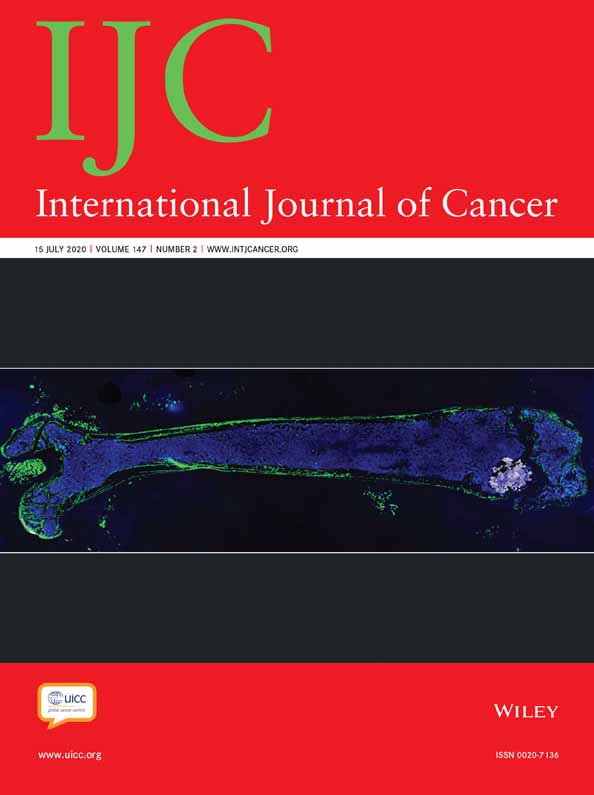Development and validation of a stromal immune phenotype classifier for predicting immune activity and prognosis in triple-negative breast cancer
Shaoquan Zheng, Yutian Zou, Xinhua Xie and Jie-ying Liang contributed equally to this study.
Funding information: National Natural Science Foundation of China, Grant/Award Numbers: 81672598, 81772961, 81872152; Science and Technology Planning Projects of Guangzhou, Grant/Award Number: 201704020188
Abstract
Our study aims to construct a prognosis-related immune phenotype classifier for predicting clinical prognosis and immune activity in triple-negative breast cancer (TNBC). A total of 237 patients with TNBC from Sun Yat-sen University Cancer Center (SYSUCC) and 533 patients with TNBC from public datasets were included in our study. A stromal immune quantified index was generated with a LASSO Cox regression model based on five prognosis-related immune cells evaluated by CIBERSORT or IHC and was used to determine immune phenotypes. Immune features were evaluated in the samples before chemotherapy. A total of 119 patients in the SYSUCC training cohort were classified into immune Phenotypes A and B according to the density of stromal CD4+ T cells, γδ T cells, monocytes, M1 macrophages and M2 macrophages. Phenotype A predicted better survival than Phenotype B, and the classification was further validated in the testing cohort of 118 patients and the validation cohort of 533 patients. In the combined cohort, significant differences were found in Phenotype A compared to Phenotype B for the 5-year overall survival (83.5% vs 65.8%, respectively, P < .01) and the 5-year disease-free survival (87.3% vs 76.0%, respectively, P < .01). In Phenotype A, immune-related pathways were significantly enriched, and a higher level of immune checkpoint molecules, including PD-L1, PD-1 and CTLA-4, could be observed. The immune phenotype classification was an independent prognostic indicator for TNBC and might serve as a potential predictor for immune activity within the tumor microenvironment.
Abstract
What's new?
Stromal infiltrating immune cells play a crucial role in tumor proliferation, invasion, and metastasis. However, few studies have investigated the prognostic potential of an overall stromal immune-cell signature in triple-negative breast cancer (TNBC). Here, the authors developed an immune index that classified patients into two immune phenotypes with different prognoses. Among the stromal infiltrating immune cells in TNBC, CD4+ T cells, γδ T cells, and M1 macrophages predicted a better prognosis, while monocytes and M2 were worse indicators. The classification was an independent prognostic indicator for TNBC and might serve as a potential predictor for the tumor microenvironment immune activity.
CONFLICT OF INTEREST
No potential conflicts of interest were disclosed.




